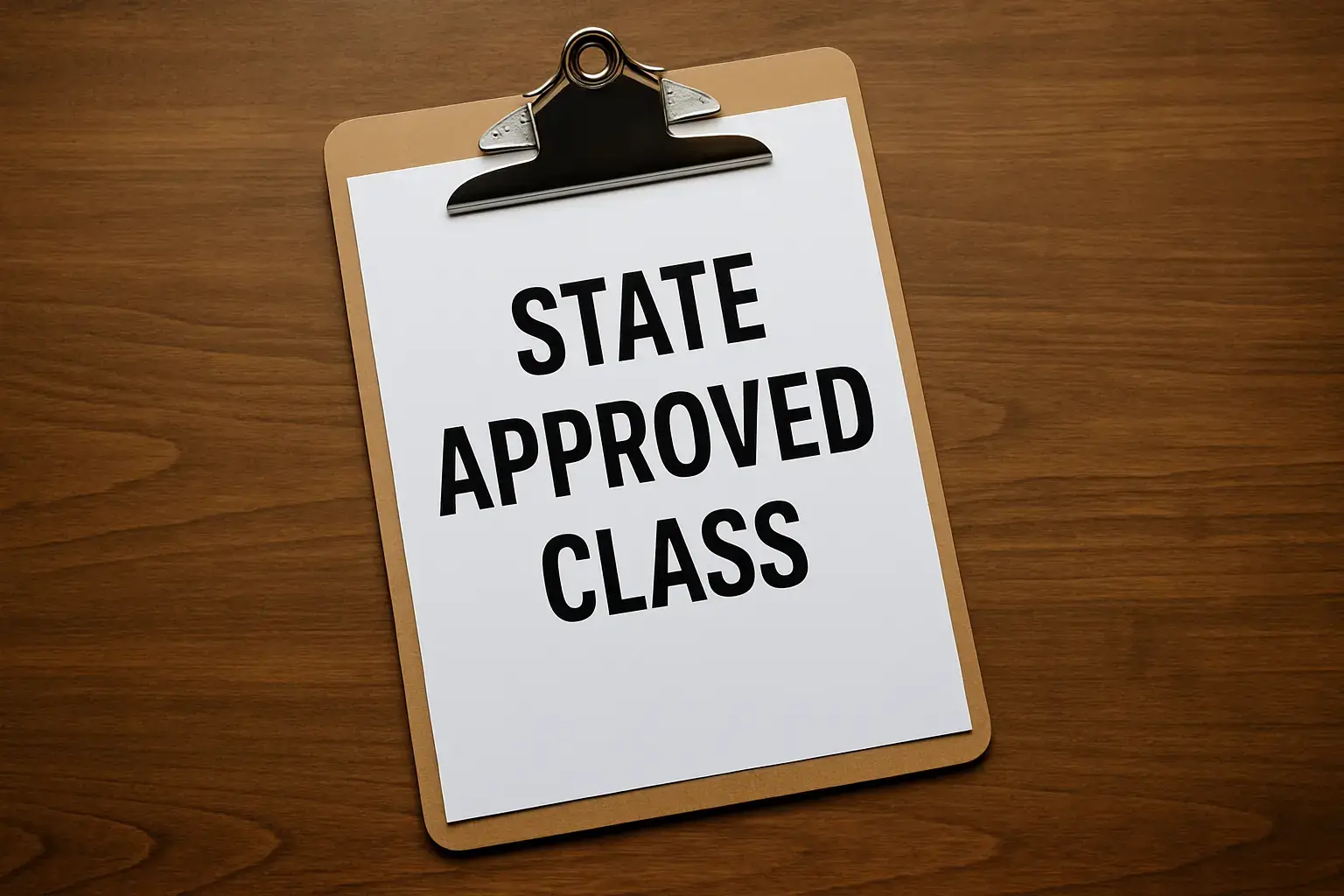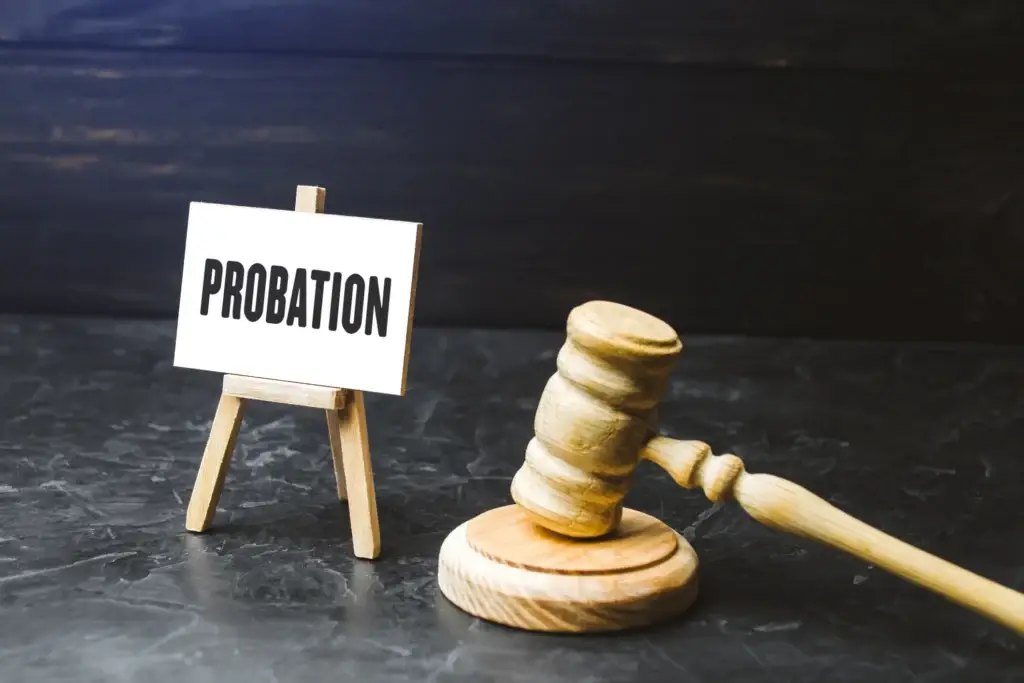April 21, 2025
Finding a State-Approved Online Alcohol Awareness Course: Your Complete Guide to Verification and Compliance

If you’ve been ordered by a court, probation department, or the DMV to complete an alcohol awareness class, one of your first and most critical tasks is identifying a legitimate, state-approved online provider whose course will satisfy your specific legal requirements. In today’s digital age, while there are countless online options available, navigating this landscape to determine which courses are genuinely recognized and accepted by state authorities can feel daunting and lead to significant anxiety. Choosing the wrong provider could mean your time and money are wasted, and your completion certificate is rejected, leading to potential legal complications or delays in regaining driving privileges.
To simplify this essential process and provide you with the confidence that your chosen class meets all necessary state regulations and court expectations, we’ve created this comprehensive guide. We will walk you through exactly what “state-approved” means in the context of online alcohol awareness courses, explain why this credential is non-negotiable, provide clear, step-by-step instructions on how to verify a provider’s credibility, and highlight how selecting a state-approved online alcohol awareness class from a trusted provider like Courseable can streamline the process of fulfilling your legal obligations.
Why "State-Approved" is the Most Critical Factor for Online Alcohol Awareness Courses
When a court or state agency mandates you to attend an alcohol awareness class, the requirement almost always comes with an explicit instruction – the course must be state-approved or recognized by the specific mandating authority (e.g., a particular county court or the state DMV). This isn’t a bureaucratic formality; it’s a crucial quality control measure.
The Significance of State Approval:
- Ensures Legal Acceptance: Completing a state-approved course provides the assurance that your certificate of completion will be recognized and accepted by the court, DMV, probation office, or other requiring entity in that specific state or jurisdiction. Without this approval, your course completion may be deemed invalid, forcing you to retake an approved class.
- Guarantees Educational Standards: State approval signifies that the course curriculum, instructional design, duration, and assessment methods have been reviewed and vetted by relevant state authorities. This ensures you receive accurate, up-to-date, and comprehensive information that meets established educational standards regarding alcohol misuse, legal consequences, and risk reduction.
- Validates Provider Credibility: State approval is a strong indicator that the online provider is legitimate, operates with integrity, and adheres to administrative requirements, including secure handling of your personal information. It helps protect you from fraudulent websites or unaccredited programs.
Completing a non-approved course due to a lack of verification or choosing solely based on low cost can lead to significant wasted time, financial loss, and potentially serious delays in license reinstatement Can Alcohol Awareness Classes Help Restore Your Driver’s License? or fulfilling your court-ordered obligations. Conversely, selecting a state-approved course offers peace of mind and guarantees that your efforts will count towards meeting your legal requirements. To better understand how court-approved classes function and their general purpose, visit our detailed guide on Court-Approved Online Alcohol Awareness Classes
By ensuring the educational quality, courts are more confident that the program will effectively promote genuine behavioral change and reduce the likelihood of participants reoffending, thereby increasing public safety.
Understanding What "State-Approved" Means in Practice
The term “state-approved” for alcohol awareness courses means that a specific governmental department or agency within that state has formally reviewed and certified that the program meets their established criteria for content, delivery, and administration.
What Does the Approval Process Involve?
While specific processes vary by state, obtaining state approval typically requires course providers to demonstrate:
- Compliance with State Educational Requirements: The curriculum must cover all mandatory topics required by the state’s laws related to alcohol education, DUI prevention, and traffic safety.
- Accurate, Up-to-Date Curriculum: The course content on alcohol’s effects, related laws, and safety strategies must be factually correct and current.
- Appropriate Duration: The course must be structured to meet the minimum number of hours required by state law for different offenses (commonly 4, 8, or 12 hours). 8 Hour vs 12 Hour Alcohol Awareness Classes explains why different lengths are required.
- Legitimate Assessment Methods: Courses must include quizzes or tests Do Online Alcohol Awareness Classes Include Tests? that effectively verify participant understanding of the material.
- Qualified Instructors/Content Experts: The curriculum is developed or overseen by individuals with relevant expertise, even if the delivery is online.
- Secure and Confidential Handling of Participant Information: Providers must demonstrate compliance with privacy regulations.
- Reliable Completion Reporting and Certification: The provider must have a system for accurately tracking completion and issuing verifiable certificates.
Which State Authorities Grant Approval?
The specific department responsible for approving alcohol awareness programs varies by state. It’s often one of the following:
- Department of Motor Vehicles (DMV) / Department of Public Safety / Department of Licensing: Commonly oversee programs related to DUI/DWI and driver’s license reinstatement.
- Department of Health / Department of Behavioral Health / Department of Health Services: May approve programs as part of broader substance abuse prevention or education initiatives.
- State Court Administrative Offices or Specific County/Municipal Courts: Some judicial systems maintain their own lists of approved providers specific to their court orders.
- Specific State Boards or Commissions: A few states have dedicated boards that certify DUI schools or alcohol education providers (e.g., Texas Department of Licensing and Regulation (TDLR) for DWI education).
Why Do Courts and State Agencies Insist on State Approval?
Courts and state authorities mandate approved programs for several critical reasons:
- Ensuring Consistency and Quality Control: Approval guarantees that all individuals receiving a court order for education receive a similar standard of information and program quality, regardless of the specific provider they choose. This prevents fly-by-night operations with inadequate curricula.
- Verifying Content Relevance: Approval confirms that the course curriculum directly addresses the causes and consequences of alcohol abuse, impaired driving, and related legal issues, aligning with the court’s objectives. Reasons Courts Order Alcohol Awareness Classes] provides more context on these objectives.
- Legal Compliance: Requiring attendance at an approved program is often embedded in state statutes related to alcohol offenses, making it a matter of legal compliance for both the offender and the judicial system.
- Promoting Behavioral Change: By ensuring the educational quality, courts are more confident that the program will effectively promote genuine behavioral change and reduce the likelihood of participants reoffending, thereby increasing public safety.
Your Step-by-Step Guide to Verifying if an Online Alcohol Awareness Course is State-Approved
Given the critical importance of choosing a state-approved provider, follow these steps carefully to verify a program’s legitimacy before you enroll and pay. This process is covered in detail in our dedicated post, which we strongly recommend you consult: How to Verify if an Online Alcohol Awareness Class is Legitimate. Below is a summary of the key steps:
Step 1: Identify the Specific Approving Authority for Your Case:
Carefully review your court order, probation documents, or any notice received from the DMV. It may explicitly name the required approving authority (e.g., “must be approved by the California DMV,” “must be a Texas TDLR-approved DWI Education Program,” “must be approved by the [Your County] Superior Court”). If it’s unclear, call the court clerk or your probation officer and ask for the name of the state agency or court body responsible for approving the alcohol awareness classes they require.
Step 2: Check the Official Website of the Approving Authority:
Once you know the specific approving authority, go directly to their official government website. Look for sections titled “DUI Programs,” “Alcohol Education Providers,” “Approved Courses,” “Traffic Safety,” or similar. Many state agencies maintain searchable online databases or publish downloadable PDF lists of currently approved providers.
- Example Search Terms: “[Your State] DMV approved DUI programs,” “[Your State] Department of Health alcohol education providers list,” “[Your County] Court approved alcohol classes.”
- Verify that the website is an official government site (look for .gov or official state university extensions).
- Search the list or database for the name of the online provider you are considering. If they are listed there for the correct type and duration of course required for your offense, this is strong verification.
Step 3: Contact the Online Course Provider and Request Verification Details:
Visit the website of the online provider. A legitimate provider will clearly state their state approval status, often with the name of the approving agency. If you are still uncertain, contact their customer support directly via phone or email.
- Ask them specifically: “Are you approved by the [Name of Specific Authority from Step 1] in [Your State] for the [Required Number of Hours, e.g., 8-hour] alcohol awareness class?”
- Request documentation proving their approval (e.g., a copy of their approval certificate or a link to their listing on the official state website). Legitimate providers are transparent and will readily provide this information to assure you of their status. Be wary of providers who are evasive, give vague answers, or cannot provide verifiable proof of approval by the specific authority relevant to your case.
Step 4: Double-Check with Your Court or Probation Officer (Recommended):
If you have any lingering doubts after completing steps 1-3, make a final confirmation call to your probation officer or the court clerk handling your case. Tell them the name of the online provider you intend to use and ask them to confirm it is on their list of accepted programs for your specific requirement. This direct confirmation provides the highest level of assurance.
Why Choosing a State-Approved Online Alcohol Awareness Course is Advantageous
State-approved online courses offer the same convenience as any online learning.
Once you have confirmed that an online provider is state-approved for your needs, choosing this format offers numerous distinct advantages, especially when dealing with court mandates:
- Convenience and Flexibility: State-approved online courses offer the same convenience as any online learning. You can complete the coursework at any time, from anywhere with internet access, fitting it around your work, school, or family schedule without the need for travel – particularly helpful if your license is suspended.
- Immediate Certification: Reputable, state-approved online providers like Courseable offer immediate digital certificates of completion upon successfully finishing the course and passing any required assessments. This is crucial for meeting court or DMV deadlines without waiting for a certificate to be mailed, potentially expediting processes like license reinstatement. Understanding certificate validity is key here: Alcohol Awareness Class Certification: How Long Is It Valid?
- Accessibility: Online courses provide accessibility for individuals in rural areas, those with transportation issues, or those with disabilities that might make attending in-person classes difficult.
- Cost-Effectiveness: State-approved online courses are often more affordable than comparable in-person programs due to lower overhead costs. This can help manage the overall financial burden associated with legal penalties and requirements. Costs of Court-Mandated Alcohol Awareness Classes
- Privacy and Comfort: Completing the course privately in your own space can be more comfortable and less intimidating than discussing sensitive topics in a group setting.
- Consistency and Quality: State approval guarantees that the online curriculum meets quality standards, ensuring you receive consistent and comprehensive education.
Learn more about these and other benefits in our detailed comparison: Online vs. In-Person Alcohol Awareness Classes: Which is Better?
Common Mistakes to Avoid When Selecting a State-Approved Online Alcohol Awareness Class
Even when armed with the knowledge of verification steps, it’s easy to make errors. Be sure to avoid these common pitfalls:
- Choosing Based Solely on Low Cost: While affordability is important, an extremely low price can be a red flag. State-approved providers invest significantly in curriculum development, platform technology, and maintaining their accreditation. Unusually cheap courses may be unapproved and ultimately worthless for your compliance needs. Balance budget with verified accreditation.
- Not Confirming State Acceptance for Your Specific Case: Do not solely rely on a provider’s claim that they are “nationally accepted” or “accepted in most states.” You must confirm approval by the specific state authority relevant to your case using the verification steps outlined above. State requirements vary!
- Waiting Until the Last Minute: Procrastinating on finding and completing your course adds stress and increases the likelihood of rushing your research, potentially leading to choosing an unapproved provider or missing your court deadline. Allow yourself ample time to research, verify, and complete the class comfortably.
- Assuming Approval for All Course Lengths: A provider might be approved for an 8-hour course, but not a 12-hour course in your state. Ensure the specific length required by your court order is covered by the provider’s approval in your state.
Yes. Reputable online providers that explicitly state and can verify their state-approved status are widely accepted by courts, probation departments, and DMVs nationwide. However, the burden of verification is on you. Always confirm with your local court or the specific mandating authority for your case before enrolling.
With most online providers, you can enroll and begin the course immediately, at any time of day or night. The time it takes to finish depends on the required number of hours for the class (e.g., an 8-hour course requires approximately 8 hours of engagement) and your own pace. You can often complete it over several days or weeks within your court-mandated timeframe.
Most states now accept online alcohol awareness classes, but specific rules and the list of approved providers vary significantly by state and even by specific court. Always verify your state’s requirements and confirm the provider is approved for your specific jurisdiction and course length.
No. “Nationally Accepted” is often marketing language. For court-ordered requirements, you need a course that is specifically approved by the relevant state authority in the state where your offense occurred or where the court is located. Always look for and verify state-specific approval.
Obtaining and maintaining state approval is a lengthy and rigorous process involving detailed review of curriculum, administration, and technology. This is why state approval is a strong indicator of a provider’s legitimacy and commitment to meeting high standards.
Generally, no. If a court or DMV in your new state requires an alcohol awareness class, it will almost certainly need to be a course that is specifically approved by the authorities in that new state. An approval from a different state typically does not transfer. The class is usually tied to the jurisdiction where the offense occurred or where the court is located.
Even if your court order doesn’t use the exact phrase “state-approved,” it is highly likely that the court expects you to complete a program that meets state standards and is on an approved list. This is standard procedure. To be certain, always call the court clerk or your probation officer to clarify their requirements and ask for a list of accepted providers.
A provider’s state approval often covers their entire program curriculum. However, you must ensure that the specific course length required by your court order (e.g., 8 hours) is explicitly included within the provider’s state approval for your jurisdiction.
Yes. State approval standards ensure that the curriculum for different types and durations of alcohol awareness courses covers topics relevant to the offenses for which they are typically mandated, including DUI/DWI consequences, underage drinking laws ([INTERNAL LINK TO Guide to Alcohol Awareness Classes for Underage Drinking Offenses]), public intoxication, etc.
The best place to start is the official website of your state’s DMV or Department of Public Safety, or the website for the specific court that handled your case. Use search terms like “[Your State] DMV approved DUI programs,” “[Your State] court alcohol education providers,” or call the court clerk or your probation officer.
No. State approval confirms that the certificate is accepted initially. The validity period of the certificate for ongoing requirements (like DMV monitoring or employer mandates) is a separate matter determined by the authority that requires its use, typically lasting 2-5 years for DMV purposes. State approval does not guarantee indefinite validity of the certificate itself. Alcohol Awareness Class Certification: How Long Is It Valid?
Tips for Successfully Completing Your State-Approved Online Course
Once you’ve found and enrolled in a state-approved online alcohol awareness course, follow these tips to ensure a smooth and successful completion for timely submission:
- Allocate Consistent Study Periods: Set aside regular, distraction-free time to work through the course modules. Avoid trying to rush through the material.
- Choose a Quiet, Private Environment: This will help you focus on the content and complete the course efficiently.
- Carefully Review Course Materials and Take Notes: Engaging actively with the information will improve your understanding and retention, making it easier to pass quizzes and the final test.
- Take Advantage of Support Services: If the provider offers customer support, technical assistance, or help with understanding the course content, don’t hesitate to reach out if you need help.
- Confirm Certificate Submission Process: Know exactly how you need to obtain your certificate upon completion and where you need to submit it (court, probation, DMV). Don’t assume the provider handles submission for you.
Detailed tips for successful course completion, whether online or in-person, are available in our related post: Tips for Successfully Completing Your Alcohol Awareness Class.
Final Thoughts: Choose Confidence and Compliance with a State-Approved Course
Navigating court requirements after an alcohol-related offense can be challenging, but finding a reliable, state-approved online alcohol awareness class is a critical step you can take with confidence. By understanding what state approval means, following the necessary verification steps, and choosing a provider with verified credentials, you ensure that your time and effort count towards fulfilling your legal obligations.
Courseable simplifies this process by offering court-accepted, state-approved online alcohol awareness classes designed to meet your educational requirements efficiently and compassionately. We provide clear accreditation details and a user-friendly platform to help you confidently navigate this requirement.
Enroll today in a Courseable State-Approved Alcohol Awareness Class Courseable’s State-Approved Alcohol Awareness Class to confidently fulfill your court requirements, gain valuable knowledge, and move forward toward a brighter, more informed future.

Alcohol Awareness Classes for First-Time Offenders: Your Essential Guide After an Initial Alcohol-Related Offense
Read More »Disclaimer: Always Confirm Specific Requirements with Authorities
This article is intended as general guidance and information for educational purposes only. It does not constitute legal advice, medical advice, or professional counseling. Laws and specific requirements for alcohol awareness classes, including acceptable providers and the verification process, vary significantly by state, county, and individual case details and are subject to change. You must always consult directly with your attorney, probation officer, the specific court involved in your case, or the relevant state DMV or licensing authority to confirm the exact requirements applicable to your specific situation and to definitively verify the acceptance and legitimacy of any online course provider before enrolling and making any payment. Ensure you choose an accredited provider whose certificate will be accepted by the mandating authority.
Related Posts

Alcohol Awareness Classes and Probation: Understanding Your Requirements and Ensuring Compliance

How to Confidently Talk to Your Employer About a Court-Ordered Alcohol Awareness Class
Start Your Court Ordered Alcohol Class


